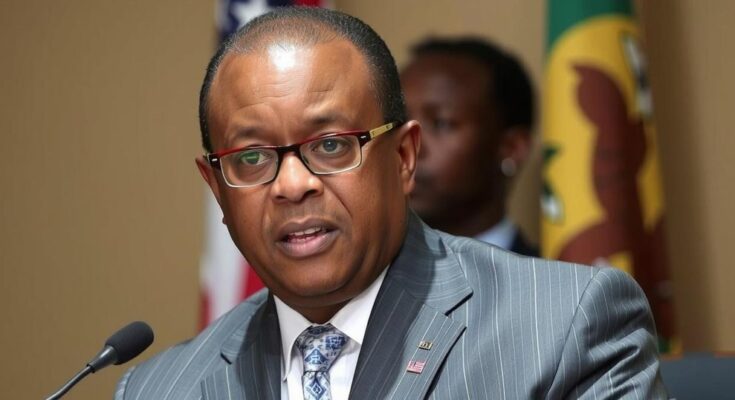US Ambassador Marc Dillard has condemned the recent abductions in Kenya, urging for accountability and adherence to human rights. His statements align with growing public protests demanding the release of seven missing individuals since December 21. Dillard’s remarks echo the legacy of President Jimmy Carter, while police responses to protests have raised concerns over governmental actions amidst claims of enforced disappearances.
Marc Dillard, the United States Ambassador to Kenya, has expressed his profound concern regarding the recent abductions within the country. He underscored the essential need for enhanced accountability and a strict adherence to the rule of law, reflecting a growing demand from international observers, local human rights advocates, and political leaders. These voices are united in their calls for an immediate cessation of enforced disappearances, which have stirred public outrage and catalyzed significant protests in major urban centers such as Nairobi.
The protests center around the urgent appeals for the unconditional release of seven individuals who allegedly went missing since December 21, provoking widespread demonstrations, particularly on December 31 in Nairobi’s Central Business District. The demonstrators, showcasing various placards, openly criticized the current Kenya Kwanza administration. Dillard cited the mission of the late former President Jimmy Carter, renowned for his advocacy for global human rights, stating, “President Carter championed human rights worldwide. In the spirit of his legacy, we join the calls in Kenya for accountability and respect for the rule of law. Abductions must end.”
In retaliation to the protests, law enforcement officials erected barricades and imposed restrictions on public transport meant to inhibit protest activities. As the demonstrations escalated, a wave of online activism began circulating on December 29, amplifying demands for the release of missing persons, including notable figures such as Steve Mbisi and Billy Mwangi. Amid these tensions, at least 23 individuals were arrested, including Busia Senator Okiya Omtatah, who faced charges of incitement to violence. Despite a motion to detain the protestors for an extended period, the High Court intervened, allowing their release on bail or bond. According to the Kenya National Commission on Human Rights, there have been 82 recorded abductions since the protests began last summer, with 13 incidents noted in the past three months.
Although there are rising concerns regarding these disappearances, Kenyan authorities have persistently insisted that the government does not engage in or endorse such conduct, a position met with skepticism from various stakeholders.
The situation surrounding the enforced disappearances in Kenya has garnered international attention, prompting a strong response from both local and foreign entities. The abductions have sparked significant protests in key cities, primarily focusing on the plight of individuals who have gone missing recently. The ongoing unrest is exacerbated by the broader historical context of human rights issues in Kenya, where instances of abductions have previously been reported amidst political tensions. The calls for accountability are increasingly resonating with citizens who demand action against what they perceive as governmental inaction or complicity in these disappearances.
In summary, US Ambassador to Kenya Marc Dillard has formally condemned the recent abductions in the nation, urging for accountability and a commitment to human rights in line with the legacy of former President Carter. The protests arising from public demands for the return of abducted individuals highlight a critical moment in Kenya’s political landscape, where citizens are increasingly challenging governmental authority and demanding transparency. Despite official denials from the Kenyan government regarding involvement in these activities, the calls for justice and protection of human rights continue to intensify, reflecting a society eager for change and accountability.
Original Source: www.mwakilishi.com




